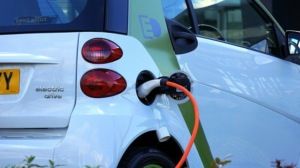News
‘Green’ car sales soaring in Denmark
This article is more than 5 years old.
Despite cars sales declining overall, a record 1,706 electric and hybrid cars have been sold in June so far

The costs of charging an electric vehicle are highest in Denmark, a new study shows (photo: Pixabay)
Just a few years ago, electric car sales collapsed in Denmark in the slipstream of the Venstre-led government at the time phasing back in the registration tax on electric over a four-year period.
But the current government’s decision to postpone that move looks to have kick-started Denmark’s appetite for greener cars.
According to the Transport Ministry, 1,706 vehicles completely or partially powered by electricity have been sold so far in June – a new record for the month of June.
Last June, only 4 percent of car sales involved a green car, a figure that has increased to 11 percent this month – despite general car sales declining by 20 percent compared to June 2019.
READ ALSO: 100 percent of Danish electricity generation to be green by 2027
Driving towards 2030
Transport minister, Benny Engelbrecht, is pleased that more Danes are turning to more sustainable vehicles.
“Electric cars have gone from being a luxury item to being more everyday and a greener option for the typical family,” he told DR Nyheder.
“The rise has occurred in spite of the coronavirus situation, during which many have likely thought twice about investing in a new car.”
The government is working towards banning the sale of petrol and diesel cars by 2030 and having 500,000 electric cars on Danish roads by the same year.
The most-sold electric or hybrid car this month was the Ford Kuga, of which 466 were sold. The top five was rounded out by the Tesla, Model 3 (292), Kia Ceed (120), Volkswagen e-Golf (78) and the Kia Niro (76).










































